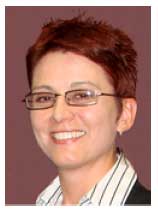Servicios Personalizados
Articulo
Indicadores
Links relacionados
-
 Citado por Google
Citado por Google -
 Similares en Google
Similares en Google
Compartir
Potchefstroom Electronic Law Journal (PELJ)
versión On-line ISSN 1727-3781
PER vol.12 no.4 Potchefstroom ene. 2009
EDITORIAL
• "I have learnt that although the study of law is sublime its practice is not all that vulgar; and that there is a symbiotic relationship between study and practice" said Justice Louis Harms of the South African Supreme Court of Appeal on 15 July 2009 in Pietermaritzburg, South Africa, delivering the keynote address on the occasion of the Congress of the Society of Law Teachers of Southern Africa. We are pleased to publish the full address here as an oratio on the Bench and Academia.
• With his focus on the landmark decision of the South African Constitutional Court in the Pillay case decided in 2007, Lourens du Plessis of the University of Stellenbosch discusses the Court's "jurisprudence of difference" and highlights the dependence of the constitutional right to freedom of religion on the constitutional prohibition of unfair discrimination.
• In a comparative overview of the legislation in the USA, the UK, Australia, India, the Gulf States and South Africa dealing with cyber crime, Fawzia Cassim of UNISA argues that there is need for legislation to extend criminal procedure to allow for the acceptance of intangible evidence associated with cybercrime and also for enhanced international cooperation to combat this growing phenomenon.
• Following an historical exposition of the manner in which traditional authorities were used under apartheid, Freddie Khunou of the Mafikeng campus of the North-West University describes the changes brought about by the new constitutional dispensation, which he describes as promoting the transformation of traditional leadership in order to align it with the foundational values and principles of the South African Constitution.
• Magdaleen Swanepoel of UNISA argues from an historical perspective both of law and psychiatry, including prehistoric times, the Arabian countries, the Nile Valley as well as Greece and Rome, that an understanding of the past helps mental health and legal practitioners to see things in a different perspective.
• Maureen Mswela of UNISA investigates the intersection between HIV/AIDS, gender inequality and gender violence in South Africa, pointing out that certain cultural practices and customs contribute to the subordination of women, thereby increasing their exposure to the dangers of HIV infection.
• Jacques Matthee of the Potchefstroom campus of the North-West University searches for means of improving legislative regulation of the situation of battered women who kill their abusers after having suffered through years of physical abuse. This is done by means of comparative surveys of the relevant dispensations in South Africa, Australia, England and Wales.
• Melanie Roestoff, Franciscus Haupt, Hermie Coetzee and Mareesa Erasmus of the Faculty of Law and Law Clinic of the University of Pretoria demonstrate that the process of debt counselling in terms of the South African National Credit Act 2005 is not functioning effectively by pointing out the loopholes in the Act causing the deficiencies of the system.
• Vinesh Basdeo of UNISA submits in an analysis of the relevant South African legislation that the search and seizure provisions contained therein are inconsistent with the spirit, purport and object of the Constitution.
• Corlia van Heerden and Hermie Coetzee of the University Pretoria analyse, with reference to a recent (unreported) case, the difficulties surrounding the provisions of the National Credit Act 2005 on the need for proper notice to be given to a defaulting creditor by a credit provider in order to activate the mechanisms of the Act for the resolution of a dispute.
Francois Venter
Edition Editor: Prof Christa Rautenbach















